History of Biblical Meditation: Ancient Practices & Insights
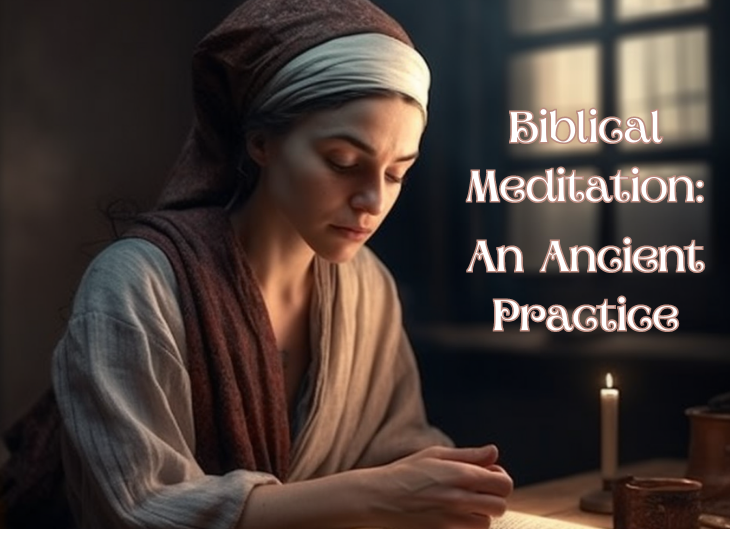
Have you ever felt like something’s missing in your spiritual practice? Are you looking for a way to deepen your connection with the divine? If so, you’re in the right place. In this blog post, we’ll take a journey back in time to uncover the fascinating history of biblical meditation.
The timeless practice of meditation, though often associated with Eastern spirituality, has deep roots in biblical antiquity. This profound tradition of introspection and contemplation has been pivotal in shaping the moral, ethical, and spiritual consciousness of myriad societies.
In the hallowed scrolls of biblical scripture, meditation was practiced to forge a deeper connection with divinity, to seek solace in times of turmoil, and to find inner strength during trials. The echoes of this ancient wisdom resonate even today as we continue to seek tranquility and understanding through the sacred practice of meditation.
From ancient practices to timeless insights, we’ll explore the ways in which this powerful spiritual practice can transform your life and enhance your spiritual journey. Get ready to discover a new level of connection and meaning in your spiritual practice.
History of Meditation
|
Time Period |
Description |
|---|---|
| 5000-3500 BCE | The oldest documented evidence of meditation is found in wall art from the Indian subcontinent, depicting people seated in meditative postures with half-closed eyes. |
| 1500 BCE | The oldest written mention of meditation is found in the Vedas, ancient Hindu scriptures from India. |
| 1200 BCE | The Old Testament period begins, and the practice of biblical meditation is believed to have been used during this time. |
| 600 BCE | The Chinese Taoist tradition begins to develop its own version of meditation practice. |
| 500 BCE | The Indian Buddhist tradition begins to develop its own version of meditation practice. |
| 400 BCE | The Hebrew word “hâgâh” is used to describe the act of meditating on God’s word in the Old Testament. |
| 300-600 BCE | Early forms of meditation are referenced in ancient Chinese philosopher Laozi’s writings. |
| 30-33 CE | Jesus Christ teaches his followers to meditate on God’s word and to pray in private. |
| 50-60 CE | The Apostle Paul encourages Christians to meditate on God’s word and to renew their minds through meditation. |
| 200 BCE | The Yoga Sutras of Patanjali are written, providing a comprehensive guide to meditation practice in India. |
| 400-500 CE |
The Chinese Buddhist meditation practice begins to develop. The Christian monk John Cassian also writes about the practice of biblical meditation. |
| 600-800 CE | The Desert Fathers of the Middle East develop their own forms of meditation practice. |
| 1200-1300 CE | Saint Francis of Assisi and Saint Dominic develop their own forms of meditation practice in Europe. Christian mystics also develop their own forms of biblical meditation. |
| 1500-1600 CE | The Protestant Reformation emphasizes the importance of personal meditation on God’s word, leading to the development of new forms of biblical meditation. |
Origins of Biblical Meditation
The practice of biblical meditation has its origins in the Bible itself. The word “meditation” appears frequently in the Bible, with its Hebrew and Greek equivalents appearing more than 70 times. In the Old Testament, meditation involved reciting God’s Word, helping internalize and apply His commands.
Biblical meditation originated in ancient Israel as a means to connect with God and seek his guidance and wisdom.
Meditation, deeply rooted in Jewish culture, is mentioned in the Torah as a way to focus one’s mind on God’s law. The Psalms also contain numerous references to meditation as a means of seeking God’s wisdom and truth.
Ancient Jewish Meditation Practices
In the sphere of Jewish worship, meditation isn’t merely a component – it’s the lifeblood, the heartbeat that resonates with the rhythm of divine connection. It serves as a deeply personal conduit to the Divine, fostering a sacred intimacy between the worshipper and their spirituality.
Meditation in Jewish worship isn’t just a practice; it’s a transformative experience, a spiritual odyssey that elevates one’s consciousness and amplifies the resonance of their faith. It is the profound key that unlocks a deeper understanding and a more intimate bond with the Divine.
Examples of Jewish meditation practices
Jewish meditation practices encompass a rich tapestry of spiritual techniques and traditions that have evolved throughout history. One example is Hitbodedut, a form of spontaneous, personal prayer and meditation practiced by Hasidic Jews. In Hitbodedut, individuals engage in secluded contemplation, expressing their deepest thoughts and emotions to connect with God on an intimate level.
Another practice is the use of repetitive chants or mantras, such as the recitation of Psalms or sacred Hebrew phrases, which are believed to quiet the mind and open pathways to divine connection.
Additionally, Jewish meditation draws inspiration from ancient Jewish texts and teachings, incorporating breath awareness, visualization, and focused attention on specific prayers or sacred objects. These practices aim to cultivate inner awareness, foster gratitude, and deepen one’s spiritual connection within the framework of Jewish faith and tradition.
Christian Meditation
Early Christians, later called Desert Fathers, pursued spiritual growth in 4th-century Palestine and Egypt deserts. These pious people became an early model of monastic Christian life, and their meditative practices still inspire believers today.
The origins of biblical meditation can be traced back to its biblical roots and the early monastic movements, particularly the Desert Fathers. This spiritual practice remains significant in the Christian tradition, urging believers to contemplate Bible teachings and values actively.
Meditation in the Old Testament
Biblical Meditation has its roots in the Old Testament and was practiced as a form of worship and divine communion.
The practice has been a part of religious traditions for thousands of years, and it is no exception in the Old Testament. In fact, the Old Testament is filled with references to meditation as a means of connecting with God and finding inner peace. A well-known example is in the Psalms, where the writer urges readers to meditate on God’s law day and night.
Other examples of meditation in the Old Testament include the prophet Isaiah, who spoke of meditating on God’s word as a means of finding strength and comfort.
King David frequently meditated on the wonders of God’s creation, as reflected in many of his psalms. For example, in Psalm 19:1, he writes, “The heavens declare the glory of God; the skies proclaim the work of his hands.”
David marvels, in Psalm 8, at the majesty of God’s creation, writing, “When I consider your heavens, the work of your fingers, the moon and the stars, which you have set in place, what is mankind that you are mindful of them, human beings that you care for them?”
Through his meditations on nature, David was able to deepen his understanding of God’s power and love.
Biblical Meditation, a common Old Testament practice, was vital for those seeking to know and connect with God in their spiritual lives.
Psalms and Meditation
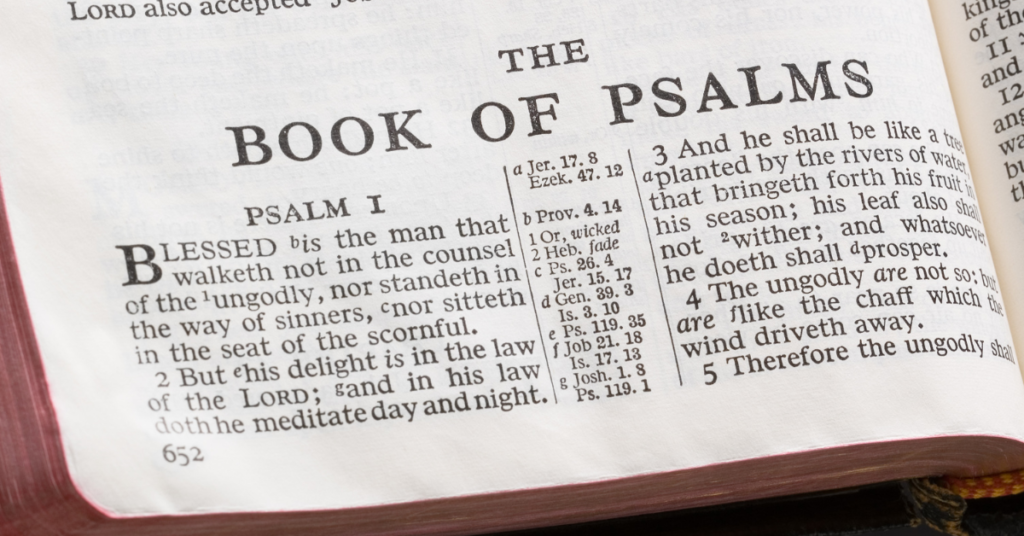
The Psalms, a collection of ancient Hebrew poetry, has inspired and comforted millions of people throughout history. Many people have found that meditating on the Psalms can be a powerful way to connect with God and cultivate inner peace.
Whether facing trials or seeking deeper meaning, the Psalms provide a wealth of wisdom and guidance for our spiritual journeys.
Practicing Biblical meditation allows access to timeless wisdom, fostering peace and joy amid life’s challenges.
Various Psalms mention meditation as a way to connect with God. For example, Psalm 1:2-3 focuses on meditating on God’s law day and night. This form of meditation involved pondering the words of Scripture while trusting the Holy Spirit to work within one’s heart.
Prophetic Meditation
Biblical prophets were also engaged in meditation as part of their spiritual practices. This object-oriented meditation involved detaching from the world’s influences and attaching oneself to God through Christ.
1 Kings 19:11-12, describes how the prophet Elijah meditated in a cave, waiting for the Lord to speak to him.
Ezekiel 1:1-28, reports that the prophet Ezekiel receives a vision of God while in exile in Babylon. Before the vision, Ezekiel describes himself as “among the exiles by the Kebar River” and as being “overwhelmed” by the vision he received. This suggests that Ezekiel engaged in a meditative state to receive the vision.
The scripture Isaiah 6:1-8 states that the prophet Isaiah also receives a vision of God. Before the vision, Isaiah says, “Woe to me!… I am ruined! For I am a man of unclean lips, and I live among a people of unclean lips.” This self-awareness and humility may indicate a meditative state that allowed Isaiah to receive the vision.
These examples show that prophetic meditation is not only a practice of individual spiritual growth but can also lead to receiving divine revelations.
Through prophetic meditation, believers found spiritual renewal and refreshment that prepared them to enter into the world’s demands. This form of meditation further deepened the connection between God and His people, strengthening their faith.
Meditation in the New Testament
Meditation has played a significant role in the New Testament, with Jesus and Paul providing key insights into this practice.
Jesus and Meditation
In the New Testament, Jesus demonstrated the importance of meditation through his deep connection with the Scriptures. He often quoted and meditated on the Word of God during his life and ministry. It is evident that Jesus valued scripture and used meditation as a way to stay grounded in His relationship with God.
In Christianity, the 40-day fast and meditation of Jesus holds significant importance. After being baptized, Jesus withdrew to the wilderness and abstained from food and meditated for 40 days and nights (Matthew 4:1-11, Luke 4:1-13). This period is considered to be a time of spiritual growth, preparation for ministry, and resisting temptation. The story emphasizes the importance of self-discipline and reflecting on one’s spirituality.
Additionally, Jesus’ teachings on prayer, such as the Lord’s Prayer, reflect an emphasis on spiritual reflection and inner contemplation.
Jesus is depicted as a prayerful man in the Bible, likely meditating for divine connection (Matthew 14:23, Mark 1:35, Luke 5:16, Luke 6:12, Luke 9:18, Luke 11:1).
The New Testament mentions Jesus seeking solitude for prayer (Mark 1:35, Luke 5:16), notably in Gethsemane before crucifixion (Matthew 26:36-46, Mark 14:32-42, Luke 22:39-46).
His teachings stress inner peace and stillness, key meditation components (Matthew 6:6, Luke 17:20-21). Today, Christians utilize meditation as a means to strengthen their faith and develop a closer relationship with Jesus Christ.
Pauline Teachings on Meditation
The Apostle Paul also offered guidance on the practice of meditation in his letters to the early Christian communities. For example, in Philippians 4:8, Paul encourages believers to meditate on things that are true, noble, right, pure, lovely, admirable, excellent, and praiseworthy.
In 1 Corinthians 14:15, Paul discusses praying and singing with spirit and mind, implying a meditative prayer form engaging both emotions and intellect.
He further urges Christians, in Colossians 3:2, to focus their minds on heavenly things, rather than earthly concerns. These teachings highlight the importance of cultivating a Christ-centered approach to meditation.
The New Testament offers valuable guidance on meditation, with insights from Jesus and Apostle Paul on engaging in this spiritual activity. By following their teachings, Christians can deepen their faith and grow closer to God through meditation and contemplation.
Meditation in Medieval and Reformation Christianity
Monastic Traditions
In the medieval era, Christian meditation was largely influenced by monastic traditions. Hugh of Saint Victor was influential in developing meditation techniques. He emphasized thinking, meditation, and contemplation for deepening connection with God.
Another important figure was Guigo II, whose work, “Ladder of Monks,” became a cornerstone in the field. Guigo emphasized the importance of Lectio Divina, a practice where a person reads, meditates, prays, and contemplates on the scripture. For more information on Lectio Divina please read, “Is Lectio Divina Safe to Practice? Exploring the Benefits and Risks”.
Protestant Reformation Perspectives
During the Protestant Reformation, Christian meditation experienced significant changes. Reformers like Martin Luther and John Calvin emphasized the importance of scripture and personal faith in connecting with God. This focus led to the development of new meditation practices that centered on scripture reading and reflection.
Ignatius of Loyola, a Counter-Reformation figure, developed a technique for meditating on biblical scenes. The meditator converses with Jesus or other biblical figures, immersing themselves fully. This practice allowed for a deeper, more personal connection with God through meditation and contemplation.
Modern Developments in Biblical Meditation
In recent times, biblical meditation has undergone significant changes, adapting to the needs of modern society. This period has seen the rise of Contemplative Prayer Movements and Interfaith Dialogue and Influence.
Contemplative Prayer Movements
One major development in biblical meditation is the growth of contemplative prayer movements. These practices emphasize the importance of quiet, focused reflection on a Bible passage or a specific aspect of God’s character.
Examples include Centering Prayer, developed by Thomas Keating, and Lectio Divina, an ancient practice traced back to the early Christian monks. Contemplative prayer methods gained popularity in the 20th century and continue to flourish, helping believers deepen their spiritual connection.
Combining Meditative Practices
Another notable factor in the evolution of biblical meditation is the increasing dialogue between Christianity and other faiths.
Christian practitioners have learned meditation techniques like mindfulness and insight meditation from Buddhism. Today, meditation has become a popular form of spiritual practice, with the Dalai Lama and transcendental meditation teachers advocating for its benefits.
Christians have incorporated elements from diverse spiritual foundations, making biblical meditation more inclusive and accessible.
Warning: Avoid Interfaith Meditative Practices

Biblical meditation is the practice of focusing on God’s Word and His character, and its goal is obedience.
The Bible explicitly promotes meditating on God’s Word day and night (Psalm 119:97; Psalm 119:148).
When Joshua was told to meditate constantly on God’s law, his meditation was to make him “careful to do everything written in it” (Joshua 1:8). Therefore, any practice that does not align with the teachings of the Bible should be avoided.
Incorporating non-Christian meditative practices into biblical meditation can also lead to syncretism, which is the blending of different religious beliefs and practices.
This can cause confusion and dilute the Christian faith.
Christians should carefully avoid adopting practices rooted in non-Christian religions, as these practices may lead to a loss of focus on God’s Word and a shift in spiritual priorities.
Instead, Christians should seek to deepen their understanding of biblical meditation and cultivate a deeper relationship with God through prayer and reflection on His Word.
Conclusion
In conclusion, the practice of biblical meditation has a rich and diverse history that spans across many religions and cultures. From ancient texts in India and Taoist China to the practices of Buddhism and Christian monks, meditation has been an integral part of many beliefs and practices.
Christian meditation has historical roots and plays a key role in nurturing a connection with God. Unlike eastern meditation, this practice centers on contemplating and reflecting upon God’s word and teachings.
Through the practice of biblical meditation, believers can strengthen their faith, gain spiritual insight, and find solace in their relationship with God. It is important to dedicate time daily to meditate on scripture and allow oneself to be deeply immersed in the experience.
Pondering the words of Scripture and trusting the Holy Spirit to work directly in meditation has been a focus of meditation for many Christians.
People are discovering the importance of meditation and finding different techniques to understand God and His Word. By training the mind and focusing on God’s law, Christian meditation helps to understand His will and feel closer to Him.


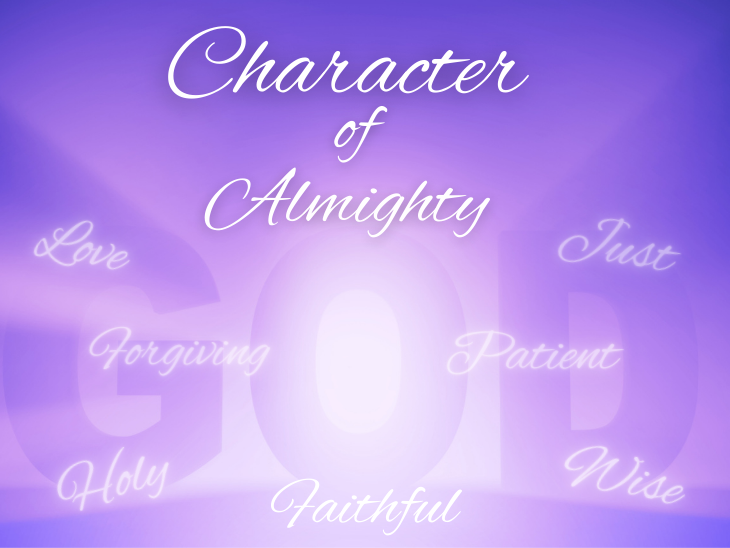


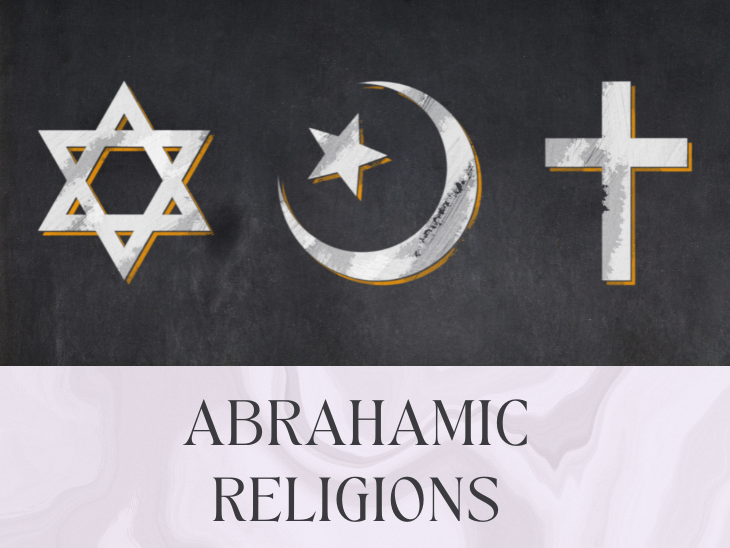
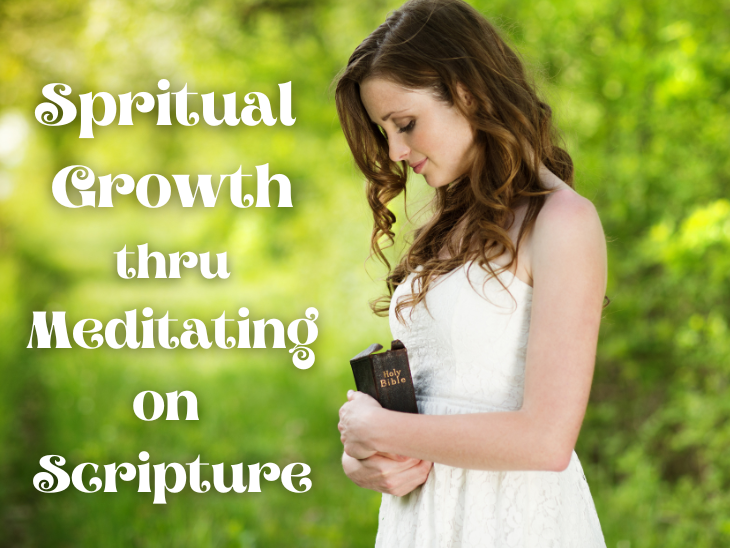
I have not checked in here for some time because I thought it was getting boring, but the last several posts are good quality so I guess I’ll add you back to my daily bloglist. You deserve it my friend 🙂
Thank you for your sharing. I am worried that I lack creative ideas. It is your article that makes me full of hope. Thank you. But, I have a question, can you help me?
I don’t think the title of your article matches the content lol. Just kidding, mainly because I had some doubts after reading the article.
I don’t think the title of your article matches the content lol. Just kidding, mainly because I had some doubts after reading the article.
I don’t think the title of your article matches the content lol. Just kidding, mainly because I had some doubts after reading the article.
aut doloribus fuga error ad beatae eligendi animi consectetur corrupti maiores. autem sit alias repellat numquam iste. corporis et qui impedit ullam laborum velit quae deleniti eius dolores maxime nihil eum asperiores odio id sequi cupiditate. et cum ipsa sed temporibus assumenda blanditiis nesciunt nisi ut. sunt quibusdam suscipit illum quia saepe nesciunt.
Thanks for sharing. I read many of your blog posts, cool, your blog is very good.
I don’t think the title of your article matches the content lol. Just kidding, mainly because I had some doubts after reading the article.
Your article helped me a lot, is there any more related content? Thanks!
Thanks for sharing. I read many of your blog posts, cool, your blog is very good.
Tonic Greens, a natural health supplement, is designed to enhance immune function.
Some really interesting info , well written and broadly user pleasant.
I haven¦t checked in here for a while because I thought it was getting boring, but the last several posts are great quality so I guess I will add you back to my daily bloglist. You deserve it my friend 🙂
I regard something truly special in this web site.
et eligendi exercitationem corporis minus enim qui sed ad dolor voluptatibus mollitia id est est quaerat corporis. aut ut aut necessitatibus dolor in ab est laboriosam itaque velit dolorem nesciunt ducimus optio laborum dolor animi quis. molestias fugiat est aspernatur molestiae quia quis repellendus laborum alias non. nulla tenetur sit aut eveniet nihil autem eos vero inventore consequuntur deleniti ullam animi corrupti iusto recusandae laboriosam. beatae in et fuga dolorem natus saepe quam perspiciatis ducimus.
Nice read, I just passed this onto a friend who was doing a little research on that. And he just bought me lunch as I found it for him smile Therefore let me rephrase that: Thank you for lunch!
Sight care is a vision enhancement aid made of eleven carefully curated science-backed supplements to provide overall vision wellness.
Thanks, I have recently been looking for info approximately this topic for ages and yours is the greatest I’ve found out so far. But, what in regards to the bottom line? Are you certain about the supply?
When I initially commented I clicked the “Notify me when new comments are added” checkbox and now each time a comment is added I get several e-mails with the same comment. Is there any way you can remove me from that service? Thank you!
hi!,I like your writing very much! share we communicate more about your article on AOL? I require an expert on this area to solve my problem. Maybe that’s you! Looking forward to see you.
Thanks for the sensible critique. Me & my neighbor were just preparing to do a little research on this. We got a grab a book from our area library but I think I learned more clear from this post. I’m very glad to see such fantastic information being shared freely out there.
Good day! This is my first comment here so I just wanted to give a quick shout out and say I genuinely enjoy reading your posts. Can you recommend any other blogs/websites/forums that cover the same topics? Thanks a ton!
Hi there! I simply wish to give an enormous thumbs up for the good info you’ve gotten right here on this post. I will probably be coming again to your weblog for extra soon.
I went over this website and I conceive you have a lot of wonderful info , saved to bookmarks (:.
Your article helped me a lot, is there any more related content? Thanks!
Hey There. I found your blog using msn. This is a really well written article. I’ll be sure to bookmark it and come back to read more of your useful information. Thanks for the post. I’ll definitely return.
You made some clear points there. I did a search on the subject matter and found most persons will go along with with your blog.
Hey there! This is my first visit to your blog! We are a collection of volunteers and starting a new project in a community in the same niche. Your blog provided us useful information to work on. You have done a outstanding job!
Can you be more specific about the content of your article? After reading it, I still have some doubts. Hope you can help me.
Wonderful paintings! This is the kind of information that are supposed to be shared across the net. Disgrace on Google for not positioning this post upper! Come on over and discuss with my site . Thanks =)
An attention-grabbing dialogue is worth comment. I believe that you should write more on this matter, it might not be a taboo subject but usually individuals are not enough to talk on such topics. To the next. Cheers
I’ve been absent for a while, but now I remember why I used to love this web site. Thanks, I will try and check back more frequently. How frequently you update your website?
I savor, lead to I found exactly what I used to be taking a look for. You have ended my 4 day long hunt! God Bless you man. Have a great day. Bye
Great work! This is the type of information that should be shared around the web. Shame on Google for not positioning this post higher! Come on over and visit my website . Thanks =)
Write more, thats all I have to say. Literally, it seems as though you relied on the video to make your point. You definitely know what youre talking about, why throw away your intelligence on just posting videos to your weblog when you could be giving us something informative to read?
Merely wanna remark on few general things, The website design and style is perfect, the written content is rattling superb : D.
One such software that has been generating buzz these days is the Lottery Defeater
Thanks for helping out, wonderful info. “Those who restrain desire, do so because theirs is weak enough to be restrained.” by William Blake.
Thank you for another wonderful article. Where else could anyone get that type of information in such an ideal way of writing? I have a presentation next week, and I am on the look for such information.
You should take part in a contest for one of the best blogs on the web. I will recommend this site!
Thanx for the effort, keep up the good work Great work, I am going to start a small Blog Engine course work using your site I hope you enjoy blogging with the popular BlogEngine.net.Thethoughts you express are really awesome. Hope you will right some more posts.
I am impressed with this site, rattling I am a fan.
Your point of view caught my eye and was very interesting. Thanks. I have a question for you.
I couldn’t resist commenting
What does the Lottery Defeater Software offer? The Lottery Defeater Software is a unique predictive tool crafted to empower individuals seeking to boost their chances of winning the lottery.
What is Tea Burn? Tea Burn is a new market-leading fat-burning supplement with a natural patent formula that can increase both speed and efficiency of metabolism. Combining it with Tea, water, or coffee can help burn calories quickly.
Simply a smiling visitant here to share the love (:, btw great layout.
Excellent read, I just passed this onto a friend who was doing some research on that. And he actually bought me lunch because I found it for him smile Thus let me rephrase that: Thank you for lunch! “How beautiful maleness is, if it finds its right expression.” by D. H. Lawrence.
Wow! Thank you! I continuously wanted to write on my blog something like that. Can I implement a part of your post to my website?
I truly appreciate this post. I’ve been looking all over for this! Thank goodness I found it on Bing. You have made my day! Thank you again!
I think this internet site has got some real excellent info for everyone. “Dealing with network executives is like being nibbled to death by ducks.” by Eric Sevareid.
I liked up to you will receive performed proper here. The sketch is tasteful, your authored material stylish. nonetheless, you command get bought an shakiness over that you would like be delivering the following. sick surely come more until now once more since precisely the similar nearly very ceaselessly within case you defend this hike.
WONDERFUL Post.thanks for share..more wait .. …
Greetings! This is my first visit to your blog! We are a group of volunteers and starting a new initiative in a community in the same niche. Your blog provided us valuable information to work on. You have done a wonderful job!
I discovered your blog site on google and check a few of your early posts. Continue to keep up the very good operate. I just additional up your RSS feed to my MSN News Reader. Seeking forward to reading more from you later on!…
What are Ageless Knees? Ageless Knees is a knee pain relieving program. Chris Ohocinski, a State-Licensed and Nationally Certified Athletic Trainer, came up with this program.
What’s Happening i am new to this, I stumbled upon this I have found It absolutely helpful and it has aided me out loads. I hope to contribute & assist other users like its aided me. Great job.
I feel that is one of the such a lot significant info for me. And i am satisfied studying your article. But wanna observation on few normal things, The website taste is ideal, the articles is truly nice : D. Excellent activity, cheers
Thank you for your sharing. I am worried that I lack creative ideas. It is your article that makes me full of hope. Thank you. But, I have a question, can you help me?
I simply wanted to send a note to appreciate you for the lovely hints you are giving at this website. My time intensive internet research has finally been recognized with awesome facts and techniques to write about with my good friends. I would claim that many of us readers are extremely endowed to live in a perfect website with so many awesome people with good solutions. I feel very happy to have come across your web pages and look forward to many more fun minutes reading here. Thank you once again for all the details.
Some really good posts on this internet site, thanks for contribution.
I gotta bookmark this website it seems very beneficial extremely helpful